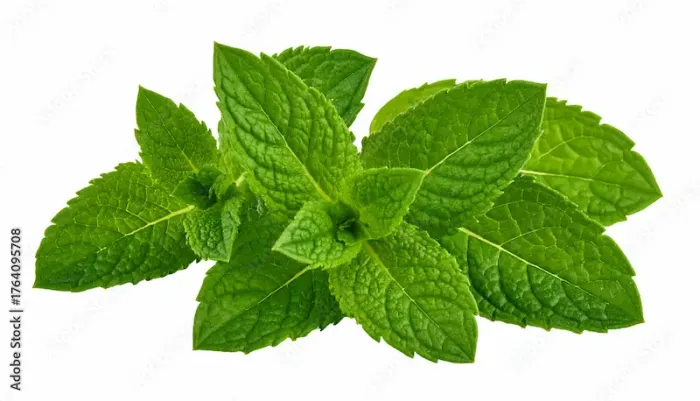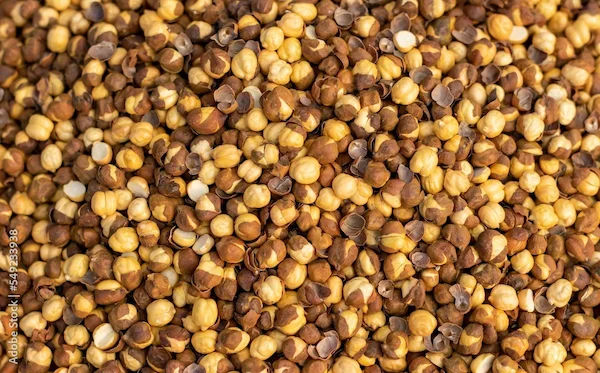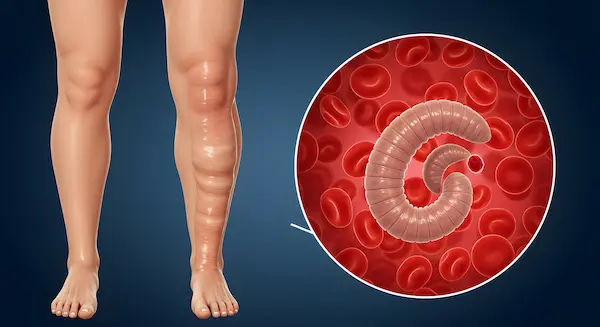Top 10 Health Benefits Of Mint Leaves
Discover top 10 mint leaves benefits. Learn pudina uses for digestion, headaches, and nausea with science-backed tips, safety advice, FAQs, and references.

Written by Dr. M L Ezhilarasan
Reviewed by Dr. Rohinipriyanka Pondugula MBBS
Last updated on 13th Jan, 2026

Introduction
Mint (pudina) is more than a refreshing herb—it has a long history in traditional and modern wellness. If you’re curious about mint leaves benefits, pudina uses, and how mint can support digestion, you’re in the right place. Below, you’ll find 10 science-informed advantages of mint, easy ways to add it to your day, and clear safety tips. The guidance here is based on reputable medical sources so you can feel confident using mint wisely.
What are Mint Leaves (Pudina)?
Mint is a group of aromatic herbs, most commonly peppermint and spearmint. Fresh leaves add bright flavour to food and drinks, and peppermint oil is often used in capsules, creams, and aromatherapy. While mint can be supportive for certain symptoms, it’s not a cure-all. Evidence is strongest for specific uses like digestive discomfort and headaches, especially with peppermint oil.
Top 10 Science-Backed Mint Leaves Benefits
Here are some top 10 science-backed benefits of mint:
1) Eases Everyday Digestive Discomfort
• What we know: Peppermint (especially as tea or in food) is commonly used to soothe the stomach, reduce gas, and help you feel less bloated after meals.
• Evidence notes: Research is strongest for peppermint oil capsules in certain digestive conditions (see #2). Sipping warm peppermint tea and including fresh mint in meals is safe for most people and may help mild, occasional discomfort.
• Safety: Peppermint can relax the lower oesophageal sphincter, which may worsen heartburn or reflux in some people.
2) Helps Relieve IBS Symptoms (Best Evidence for Peppermint Oil)
• What we know: Enteric-coated peppermint oil capsules can relax intestinal smooth muscle and reduce spasms, helping with symptoms of irritable bowel syndrome (IBS).
• Evidence notes: Multiple clinical trials and meta-analyses support peppermint oil for IBS symptom relief compared with placebo.
• How to use: Use enteric-coated peppermint oil capsules as directed and consult a clinician, especially if you have reflux or take other medicines.
3) May Ease Indigestion and Bloating
• What we know: Peppermint oil, sometimes paired with caraway oil, has been studied for functional dyspepsia (indigestion), with some people reporting less fullness and discomfort.
• Evidence notes: Results are mixed, and benefits appear modest. Combination products (peppermint plus caraway) show slightly more evidence.
• Tip: If prone to heartburn, try non-oil options like small amounts of fresh mint or tea.
4) Can Help with Nausea (Aromatherapy or Tea)
• What we know: The scent of peppermint may help reduce the sensation of nausea for some people, such as after surgery or during motion sickness.
• Evidence notes: Studies show mixed results, but it’s generally safe and soothing as a home remedy.
• Use idea: Inhale gently from a tissue with a drop of peppermint oil or sip mild mint tea.
5) Topical Peppermint Can Relieve Tension Headaches
• What we know: Applying diluted peppermint oil to the temples and forehead can ease tension-type headaches.
• Evidence notes: Small studies show peppermint oil may reduce pain intensity and provide cooling relief.
• Safety: Avoid contact with eyes and use a pre-diluted, skin-safe roll-on.
6) Cooling Comfort for Colds and Coughs
• What we know: Menthol provides a cooling sensation that can soothe the throat and make breathing feel easier.
• Evidence notes: Menthol doesn’t clear congestion but improves airflow sensation and comfort.
• Tip: Use menthol lozenges or rubs with hydration, rest, and humid air.
7) Freshens Breath and Supports Oral Health Habits
• What we know: Minty flavours freshen breath and chewing sugar-free mint gum increases saliva flow.
• Evidence notes: Dental experts note that sugar-free gum supports oral hygiene between brushing.
• Tip: Choose xylitol-based gum and visit your dentist for persistent bad breath.
8) Natural Antioxidants with Anti-Inflammatory Potential
• What we know: Mint contains rosmarinic acid and flavonoids with antioxidant activity in lab studies.
• Evidence notes: Human data is limited, but adding mint to meals supports a balanced, plant-rich diet.
9) Relief for Itch and Minor Muscle Aches (Menthol Topicals)
• What we know: Menthol-based creams and gels can create a cooling distraction from mild pain or itch.
• Evidence notes: Over-the-counter products are safe for short-term use.
• Safety: Avoid applying to broken skin and keep away from children’s faces.
10) Flavorful, Low-Calorie Way to Improve Meals and Hydration
• What we know: Fresh mint adds flavour without calories, sugar, or salt.
• Evidence notes: Using herbs like mint supports healthy eating and hydration.
• Ideas: Add to lemon water, salads, raitas, fruit bowls, or smoothies.
Consult Top Specialists
Pudina Uses: Easy, Everyday Ideas
Here are the uses of mint:
• For digestion comfort: Sip warm peppermint tea after meals; add chopped pudina to chutneys or lentils.
• Cooling drinks: Infuse water with mint, lemon, and cucumber; blend mint into smoothies.
• Flavour boost: Stir into raitas, salsas, or marinades for reduced salt.
• Tension relief: Apply diluted peppermint roll-on for mild headaches.
• Cold comfort: Try menthol lozenges (sugar-free options preferred).
Safety, Side Effects, and Who Should Avoid Mint
Here are some safety tips and who should avoid mint:
• Reflux/heartburn: Peppermint may worsen acid reflux or GERD—use cautiously.
• Gallbladder issues: Avoid peppermint oil if you have gallstones or bile duct problems.
• Medications: Peppermint oil can interact with certain drugs or antacids.
• Children: Never apply peppermint oil near infants’ or young children’s faces.
• Skin sensitivity: Always dilute essential oils before topical use.
• Pregnancy/Breastfeeding: Culinary mint is safe, but high-dose peppermint oil should be discussed with a doctor.
• Allergies/asthma: Strong aromas can irritate sensitive airways—stop if symptoms occur.
Consult Top Specialists

Ms. Suhita Sinha
Dietician
8 Years • BSC Food & Nutrition
Kolkata
Chikitsa Medicare Centre Pvt. Ltd.Sattelite Centre Behala Chowrasta, Kolkata
Mrs Sneha P V
Nutritionist
10 Years • Master of science in Food and Nutrition
Bangalore
Apollo Clinic Bellandur, Bangalore

Ms. Preeti Lata Mohanty
Dietician
2 Years • Msc in Food science and Nutrition
Bengaluru
Apollo Medical Center, Marathahalli, Bengaluru

Miss. Hafsana Fathima M
Dietician
4 Years • Msc food and nutrition
Bengaluru
Apollo Clinic, JP nagar, Bengaluru

Ms. Neelanjana J
Dietician
5 Years • Bsc., Msc. Nutrition and Dietetics specialised general weight management, PCOS/PCOD weight loss and Diabetes management. A clinical dietitian with 4+ year experience specializing in evidence-based, result-oriented nutrition therapy. I have extensive experience in weight loss, thyroid management, PCOD/PCOS, weight gain, and diabetes & prediabetes care. My approach is personalized, practical, and sustainable—focusing on helping individuals achieve long-term lifestyle change rather than quick fixes. I work closely with clients to understand their medical history, lifestyle, and goals, and then design customized diet plans that support hormonal balance, metabolic health, and overall wellbeing. My goal is to make nutrition simple, realistic, and effective—so you see measurable results and feel your healthiest self.Auther in Health benefits of jackfruit (Artocarpus heterophyllus Lam.) seeds: A review (2023) The Pharma Innovation Journal Co- Auther in Malnutrition in Women: A review (2023) The Pharma Innovation Journal. Highfield Level 3 in HACCP. Highfield Level 4 International Award in Food Safety Managment
Bengaluru
Apollo Clinic, JP nagar, Bengaluru
Consult Top Specialists

Ms. Suhita Sinha
Dietician
8 Years • BSC Food & Nutrition
Kolkata
Chikitsa Medicare Centre Pvt. Ltd.Sattelite Centre Behala Chowrasta, Kolkata
Mrs Sneha P V
Nutritionist
10 Years • Master of science in Food and Nutrition
Bangalore
Apollo Clinic Bellandur, Bangalore

Ms. Preeti Lata Mohanty
Dietician
2 Years • Msc in Food science and Nutrition
Bengaluru
Apollo Medical Center, Marathahalli, Bengaluru

Miss. Hafsana Fathima M
Dietician
4 Years • Msc food and nutrition
Bengaluru
Apollo Clinic, JP nagar, Bengaluru

Ms. Neelanjana J
Dietician
5 Years • Bsc., Msc. Nutrition and Dietetics specialised general weight management, PCOS/PCOD weight loss and Diabetes management. A clinical dietitian with 4+ year experience specializing in evidence-based, result-oriented nutrition therapy. I have extensive experience in weight loss, thyroid management, PCOD/PCOS, weight gain, and diabetes & prediabetes care. My approach is personalized, practical, and sustainable—focusing on helping individuals achieve long-term lifestyle change rather than quick fixes. I work closely with clients to understand their medical history, lifestyle, and goals, and then design customized diet plans that support hormonal balance, metabolic health, and overall wellbeing. My goal is to make nutrition simple, realistic, and effective—so you see measurable results and feel your healthiest self.Auther in Health benefits of jackfruit (Artocarpus heterophyllus Lam.) seeds: A review (2023) The Pharma Innovation Journal Co- Auther in Malnutrition in Women: A review (2023) The Pharma Innovation Journal. Highfield Level 3 in HACCP. Highfield Level 4 International Award in Food Safety Managment
Bengaluru
Apollo Clinic, JP nagar, Bengaluru
More articles from General Medical Consultation
Frequently Asked Questions
1) Is peppermint tea good for digestion?
Peppermint tea is a popular, low-risk way to soothe mild digestive discomfort after meals. While the strongest evidence is for peppermint oil capsules in IBS, many people find tea helpful for everyday gas and bloating. If you have reflux, tea may worsen heartburn.
2) Can mint (pudina) help IBS?
Enteric coated peppermint oil capsules can help reduce IBS symptoms like abdominal pain and bloating in many adults. Discuss dosing and safety with your healthcare provider before starting.
3) Does mint actually clear a stuffy nose?
Menthol can make your nose feel clearer, but it doesn’t reduce nasal congestion objectively. It can still provide soothing comfort during colds, especially in lozenges or rubs.
4) Is mint safe during pregnancy?
Mint used in cooking or tea in normal amounts is generally considered safe. There’s limited evidence on high-dose peppermint oil capsules during pregnancy, so talk with your clinician before using supplements.
Can mint cause heartburn?
Yes, in some people. Peppermint can relax the muscle at the bottom of the esophagus and may trigger or worsen reflux. If you notice heartburn, cut back or avoid peppermint, and speak with your doctor.




